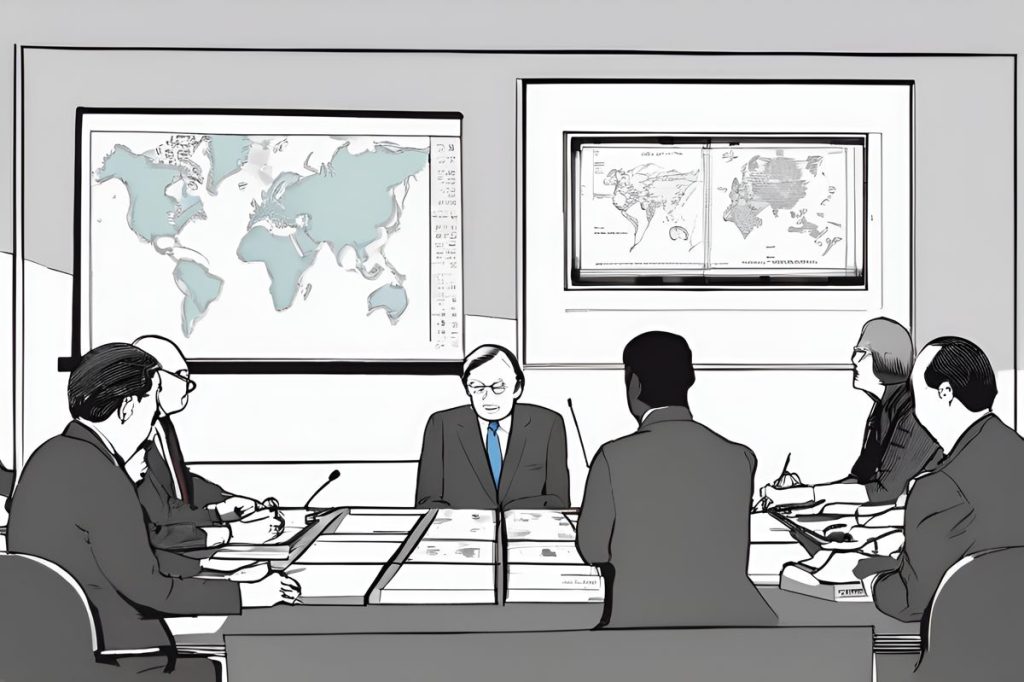The Foreign Ministry expressed satisfaction with UN reports on Cyprus, highlighting the importance of technical committees and confidence-building measures. However, they criticized the neutral stance on buffer zone violations and the sluggish addressing of humanitarian concerns, while remaining committed to resuming negotiations for peace and stability.
How has the Foreign Ministry reacted to the UN reports on Cyprus?
The Foreign Ministry showed satisfaction with the UN reports on Cyprus, valuing the emphasis on technical committees and confidence-building measures. However, they criticized the neutral stance on buffer zone violations and the sluggish address of humanitarian issues. The ministry remains committed to resuming negotiations for peace and stability.
UN Peacekeeping and Negotiation Efforts
The Foreign Ministry expressed a sense of satisfaction with the recent annual reports on the situation in Cyprus, as presented by UN Secretary-General Antonio Guterres. These reports, detailing the activities of the UN Peacekeeping Force in Cyprus (UNFICYP) and the initiatives of the UN’s Good Offices, have been met with a broad consensus from the ministry. They emphasize the significance of the technical committees and the role of confidence-building measures in fostering a secure environment for both the Cypriot community and the international audience. While these efforts are commendable, the ministry holds that only substantial progress towards the commencement of negotiations will truly deliver the peace and reassurance longed for by the island’s inhabitants.
Guterres’ adherence to the Security Council’s resolutions which advocate for a bizonal, bicommunal federal solution has been an essential guiding principle in these efforts. This blueprint is seen as pivotal in the journey towards a peaceful resolution and is thus a core component of the reports valued by the ministry.
Buffer Zone Violations and Humanitarian Concerns
Nevertheless, the ministry did not shy away from expressing its disappointment over certain aspects of the reports. The treatment of buffer zone violations was a particular point of concern. The ministry criticized what it sees as an overly neutral stance that equates the actions of both sides, leading to a distortion of facts on the ground. This approach, according to the ministry, fails to convey the true extent of the Turkish occupation’s impact on the Republic of Cyprus’ sovereignty since 1974.
The reports’ handling of humanitarian issues also drew criticism. The conditions faced by the enclaved population and the ongoing issue of missing persons were described by the ministry as being addressed in a “sluggish” manner. The ministry contends that these crucial issues are being downplayed, and the primary responsibility of Turkey as the occupying force is not being adequately highlighted.
Commitment to Resuming Negotiations
Despite these criticisms, the ministry reaffirmed its dedication to the larger goal of peace and stability. It declared a steadfast commitment to facilitating a conducive environment for a return to the negotiation table. This resolve aligns with the mission of UNFICYP’s chief Colin Stewart and the efforts of outgoing UN envoy Maria Angela Holguin, who both have been actively seeking to bridge the divide between the two communities on the island.
After Holguin’s term and her attempts to establish a common path forward, the focus now shifts to Secretary-General Guterres. With all the reports and briefings in hand, Guterres is faced with the task of outlining the subsequent moves of the UN concerning the Cyprus issue.
The Role of International Diplomacy
The involvement of the United Nations in Cyprus serves as a crucial example of international diplomacy at work. With the island’s complex history and the ongoing need for a peaceful resolution, the role of the Secretary-General and the supporting UN bodies remains indispensable. The reports by Guterres will likely influence the strategic direction and the intensity of future peacekeeping and negotiation efforts.
In a region where historical grievances and geopolitical interests are deeply intertwined, the pursuit of peace is often a delicate and protracted endeavor. The Foreign Ministry’s response to the UN reports is a testament to the challenging road ahead but also to the unyielding hope for a settlement that can finally unite the island and heal decades of division.
How has the Foreign Ministry reacted to the UN reports on Cyprus?
The Foreign Ministry showed satisfaction with the UN reports on Cyprus, valuing the emphasis on technical committees and confidence-building measures. However, they criticized the neutral stance on buffer zone violations and the sluggish address of humanitarian issues. The ministry remains committed to resuming negotiations for peace and stability.
What is the significance of UN Peacekeeping and Negotiation Efforts in Cyprus?
The UN Peacekeeping Force in Cyprus (UNFICYP) and the initiatives of the UN’s Good Offices are vital in fostering a secure environment for the Cypriot community and international audience. The Foreign Ministry supports the emphasis on technical committees and confidence-building measures. Progress towards negotiations for a bizonal, bicommunal federal solution is seen as essential for lasting peace.
What are the Foreign Ministry’s concerns regarding Buffer Zone Violations and Humanitarian Issues in Cyprus?
The ministry criticizes the neutral stance on buffer zone violations, arguing that it does not accurately reflect Turkey’s impact on Cyprus’ sovereignty. Additionally, they expressed disappointment in the sluggish addressing of humanitarian concerns, such as the conditions faced by the enclaved population and the issue of missing persons. Turkey’s role as the occupying force is highlighted as a primary responsibility.
How is the Foreign Ministry showing commitment to Resuming Negotiations for Peace in Cyprus?
Despite criticisms of the UN reports, the ministry remains dedicated to the goal of peace and stability. They are committed to creating a conducive environment for negotiations to resume and have faith in the efforts of UNFICYP’s chief and the outgoing UN envoy. The ministry looks to Secretary-General Guterres for guidance on the next steps in addressing the Cyprus issue.

